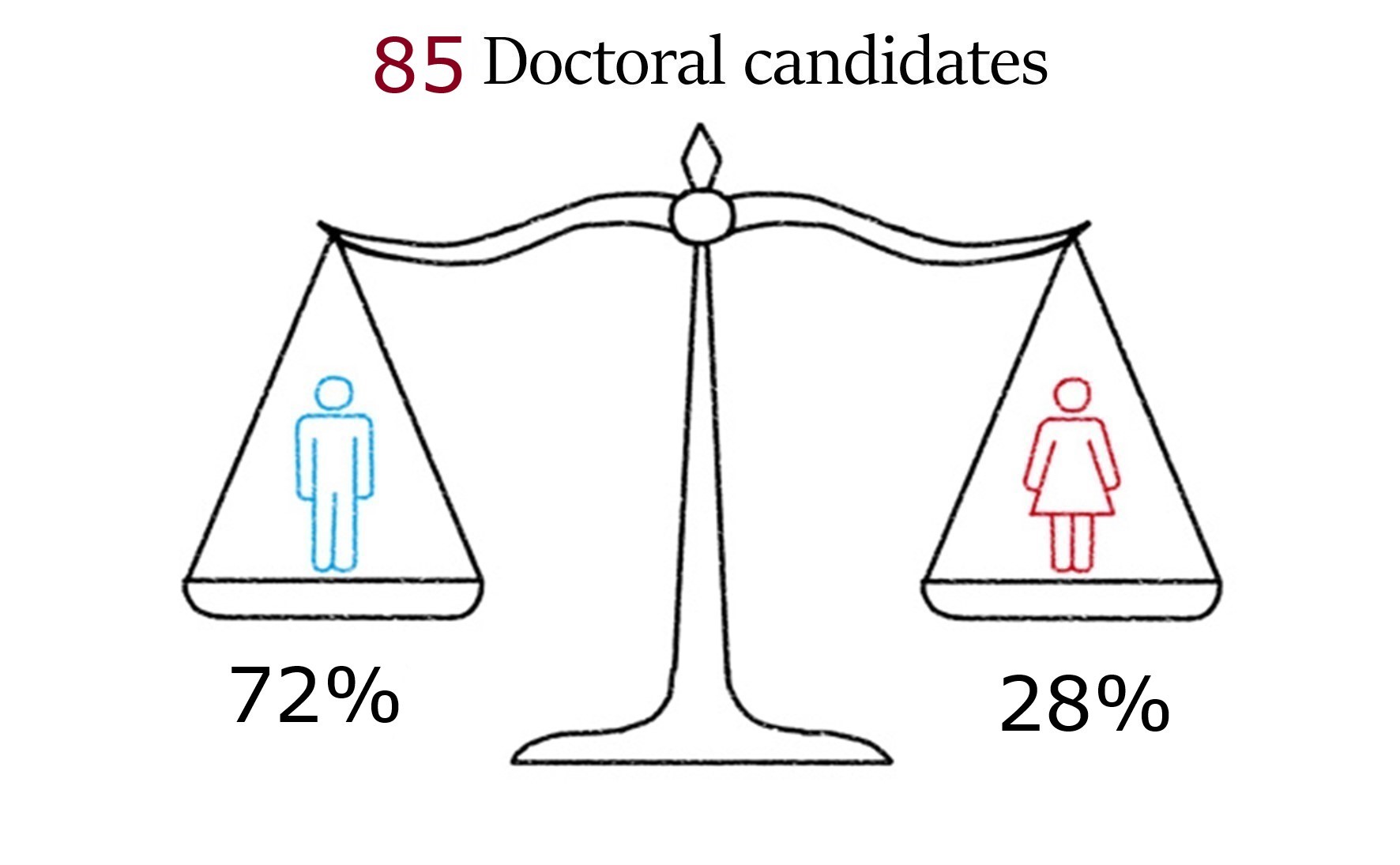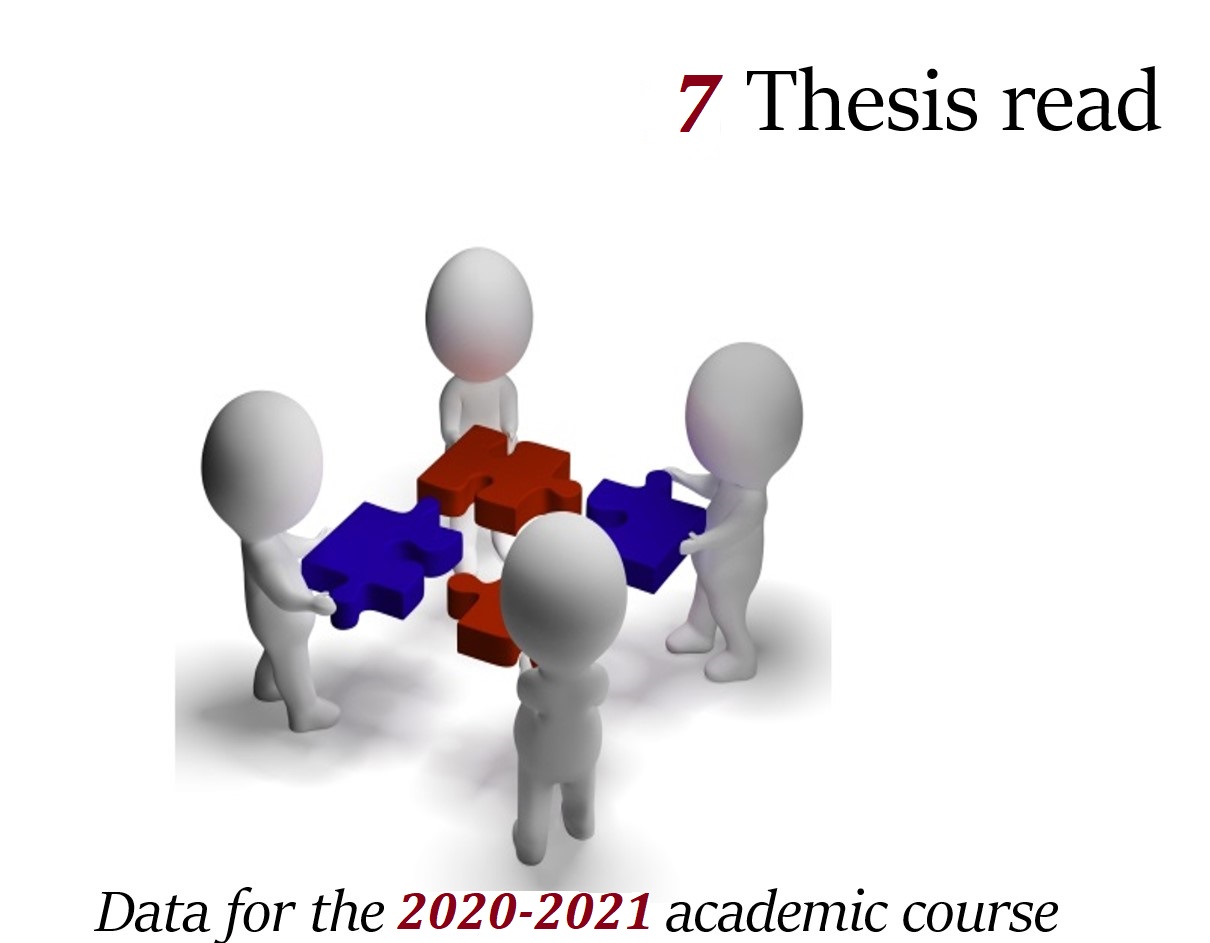
Compartir:
Computer and Telecommunication Engineering

The Doctoral Program in Computer and Telecommunication Engineering of the Escuela Politécnica Superior (EPS) at Universidad Autónoma de Madrid (UAM) provides advanced and rigorous research training that adapts to the needs of society in various areas of information and communications technologies once the official undergraduate and master's studies have been completed. This training aims, on the one hand, to provide researchers with the capacity to join competitive research teams within the disciplines taught in the Program and oriented to various professions (participation in competitive research teams, management of research projects, management of innovation and development projects, academic career, etc.), and on the other hand, to train professionals with a high degree of scientific and technical skills, able to contribute to and lead research, innovation and development projects, including the creation of innovative technology companies.
The Doctoral Program in Computer and Telecommunication Engineering aims to be a reference in the training of highly qualified researchers. The guiding axis of this program is a quality multidisciplinary training supported by the research groups at EPS-UAM, which emphasizes the knowledge of the state of the art in its specific areas, and which is open to synergy with complementary aspects contributed by other areas to respond to social demands, with a European and international projection.
As a complement to the regulated curricular teachings, the Doctoral Program in Computer and Telecommunication Engineering of EPS-UAM offers a stimulating environment with adequate means that promotes the acquisition of specialized knowledge, its dissemination in international forums and the progressive maturity of the doctoral student as a researcher or as a specialized and innovative professional. In addition, this program offers the possibility of developing transversal competences, such as: the acquisition of group research skills, the development of innovative, critical and independent thinking capacity; written communication skills, the presentation of results in specialized scientific and technological forums, the cooperation with research groups from other areas of knowledge, and the transfer of knowledge and technology to society.
Nowadays, information and communication technologies are one of the fundamental pillars for scientific and technological development. Our society faces the challenge to respond to the growing demand for innovative researchers and professionals with high qualifications in the fields of computing, electronics and telecommunications. An added difficulty is the rapid evolution of the knowledge and skills required in this area. The Doctoral Program in Computer and Telecommunications Engineering responds to these challenges with the articulation of a quality program that covers a wide spectrum of the knowledge areas that make up that scientific and technological field. The wide range of specialization provided by the research groups at EPS-UAM facilitates the design of an enriching curriculum for the doctoral student. This makes it possible to train researchers with a solid education and a dynamic and open profile, ultimately able to respond to the changing needs of a technologically advanced society. This doctoral program also benefits from the means and infrastructures provided by the Campus of International Excellence UAM+CSIC.
The research lines associated with the Doctoral Program in Computer and Telecommunication Engineering of EPS-UAM are:
- Line 1. Computational Intelligence
- Line 2. Computational Neuroscience and Natural Computing
- Line 3. Adaptive Systems and Software Engineering
- Line 4. Signal Processing and Communications
- Line 5. Computer Architecture and Networks
The research groups at EPS linked to the Doctoral Program in Computer and Telecommunication Engineering of EPS-UAM are:
- AUDIAS - Audio, Data Intelligence and Speech
- BidaLab - Biometrics & Data Pattern Analytics
- GAA - Machine Learning Group
- GHIA - Advanced Interactive Tools Group
- GNB - Biological Neurocomputing Group
- HCTLab - Hardware & Control Technology Laboratory
- HPCN - High Performance Computing and Networking
- IRG - Information Mining Group
- MEDIC - Medical Engineering Development & Innovation Center
- MISO - Software Modeling and Engineering Group
- RFCAS - Radio Frequency Group: Circuits, Antennas and Systems
- VPULab - Video Processing & Understanding Lab
Degree Official Documentation:
- Degree explanatory memorandum
- Evaluation report for ‘ANECA’ verification
- Verification resolution
- Link to the registry of Universities, Centers and Degrees
Facts & Figures




